Tag: Birds
-
Science & Tech
Clever crows
A new paper, co-authored by Dakota McCoy, a graduate student working in the lab of George Putnam Professor of Biology David Haig, suggests that, after using tools, crows were more optimistic.
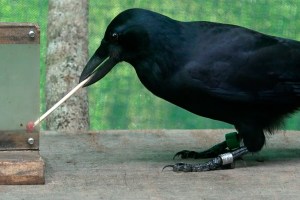
-
Science & Tech
The evolution of flightless birds
Based on an analysis of the genomes of more than a dozen flightless birds, including an extinct moa, a team led by Harvard researchers found that while different species show wide variety in the protein-coding portions of their genomes, they appear to turn to the same regulatory pathways when evolving flight loss.
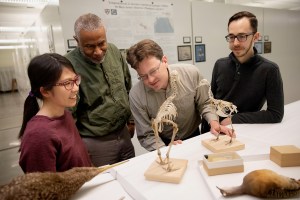
-
Health
Discerning bird
To look at him, Griffin doesn’t seem like he’d be smarter than your typical 4-year-old — he’s a bird, after all. But the African grey parrot can easily outperform young children on certain tests, including one that measures understanding of volume.
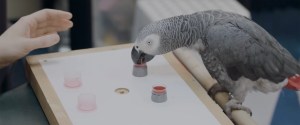
-
Health
Cracking the egg
Mary Caswell Stoddard of Harvard’s Society of Fellows is bringing an interdisciplinary approach to her study of bird eggs.
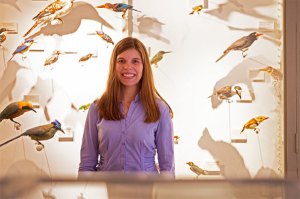
-
Health
Why birds don’t crash
A new study shows that birds use two highly stereotyped postures to avoid obstacles in flight. The study could open the door to new ways to program drones and other unmanned aerial vehicles to avoid similar obstacles.
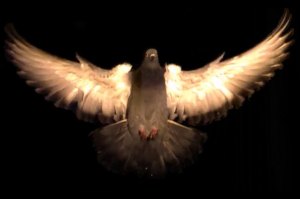
-
Health
Birds everywhere
“Birds of the World” opened in September as a permanent exhibit at the Harvard Museum of Natural History.
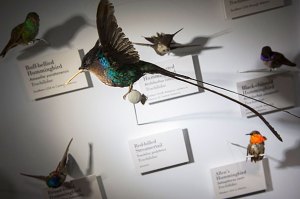
-
Health
All goes swimmingly
Using simple hydrodynamics, a team of Harvard researchers was able to show that a handful of principles govern how virtually every animal — from the tiniest fish to birds to the largest whales — propel themselves through the water.
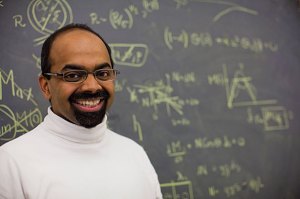
-
Health
Before takeoff
Professor Arkhat Abzhanov explored links between dinosaurs and birds in talk kicking off a five-part series called “Evolution Matters.” The next lecture is scheduled for Feb. 12.
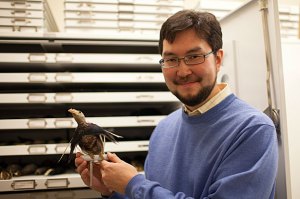
-
Science & Tech
Listening for clues
Baby songbirds learn to sing by imitation, just as human babies do. So researchers at Harvard and Utrecht University, in the Netherlands, have been studying the brains of zebra finches — red-beaked, white-breasted songbirds — for clues to how young birds and human infants learn vocalization on a neuronal level.

-
Health
Probing the sparrow’s beastly past
A new study led by Harvard scientists shows that birds are, essentially, living dinosaurs, with skulls that are remarkably similar to those of their juvenile ancestors.

-
Health
Bird, meet cousin alligator
Assistant professor Arkhat Abzhanov looks to birds’ relatives by way of dinosaurs — alligators — for clues to their evolution.

-
Health
Be wary of the cassowary
Nature writer Sy Montgomery talked about her hunt for the dangerous cassowary, as well as her passion for nature, during a presentation at the Harvard Museum of Natural History.
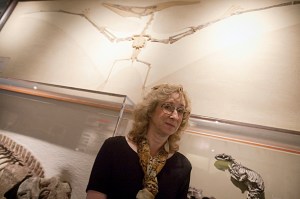
-
Campus & Community
Labor intensive
Newly tenured, the first full-time Americanist in the history of the Department of History of Art and Architecture enjoys how her studies can touch on literature, the sciences — even bird-watching.

-
Arts & Culture
The first word on nouns and verbs
Since humans learned to speak, they have put their words into two basic categories, nouns and verbs. Nouns denote objects; verbs refer to actions. Dictionaries of specialized words have been added by bankers, lawyers, scientists, and clergy, but this core distinction remains.


